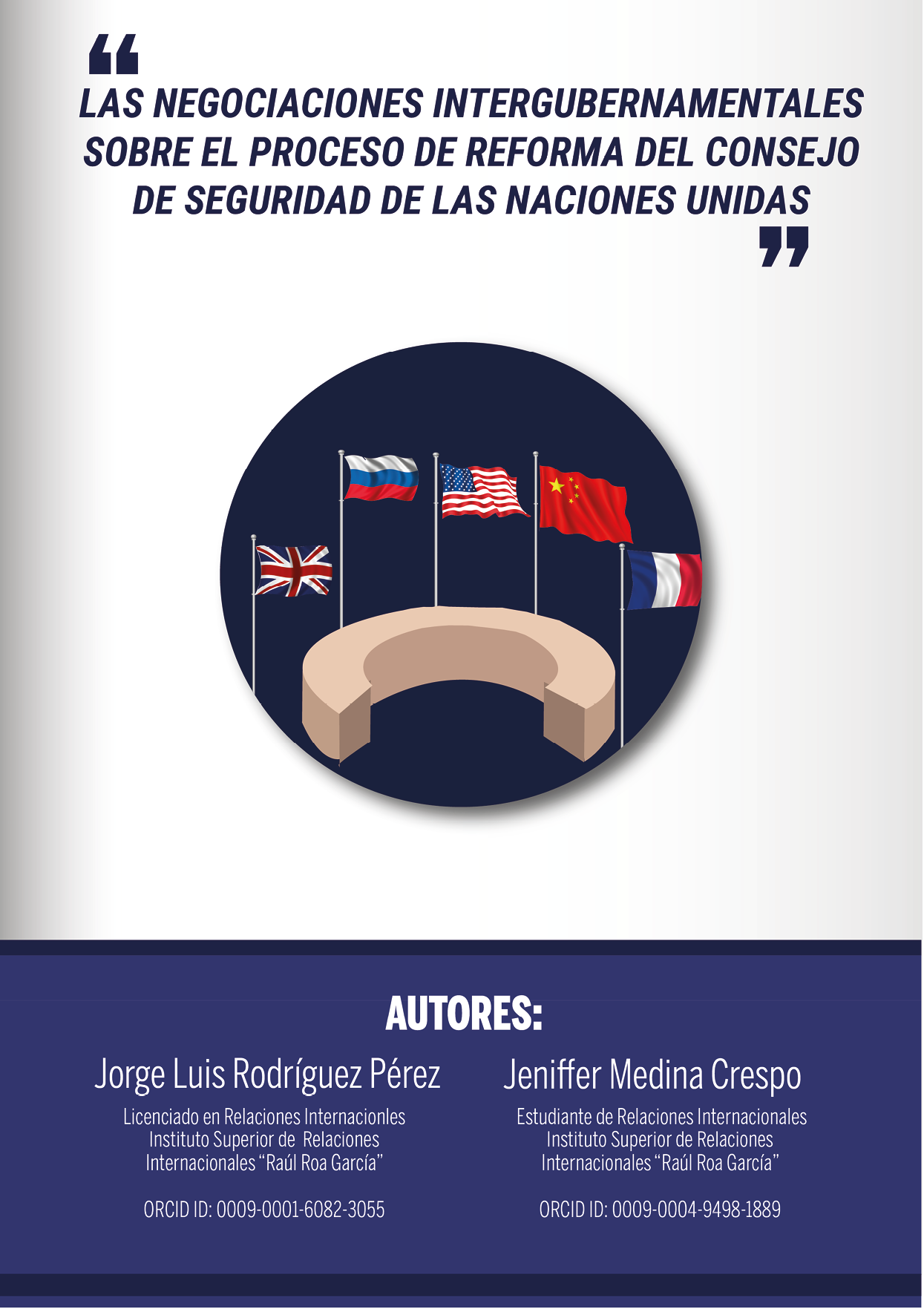Intergovernmental negotiations on the United Nations Security Council reform process
Keywords:
United Nations Security Council, reform process, IntergovernmentalAbstract
The United Nations Organization was created in 1945 during the San Francisco Conference, with the aim of providing the international system with a lasting instrument capable of maintaining stability, promoting peace and justice at the global level. Subsequently, with the approval of the Charter of the United Nations, the establishment of a Security Council was determined, which has had the primary mission of maintaining international peace and stability. However, the Security Council is not a representative body, neither politically nor geographically, so its reform has become a necessity for the States and the international community. It was in 2008, with the start of the Intergovernmental Negotiations, that the deliberations and agreements were set down in a document, which led to a greater commitment on the part of the States. Although the results of the Security Council reform process in the 2008-2024 period have not been satisfactory in view of the challenges facing the United Nations, the debates have been more interactive, the perspectives of a greater number of actors have been incorporated, its work has been carried out in a more transparent manner, and progress has been made in the institutionalization of the process. The lack of progress in intergovernmental negotiations demonstrates the complexity of the Security Council reform process and the growing polarization and geopolitical tensions that exist.
Downloads
References
Citas, Referencias y Bibliografías disponibles en los documentos.

Downloads
Published
How to Cite
Issue
Section
License
Copyright (c) 2025 Revista Científica Universitaria Ad Hoc

This work is licensed under a Creative Commons Attribution-NonCommercial 4.0 International License.











